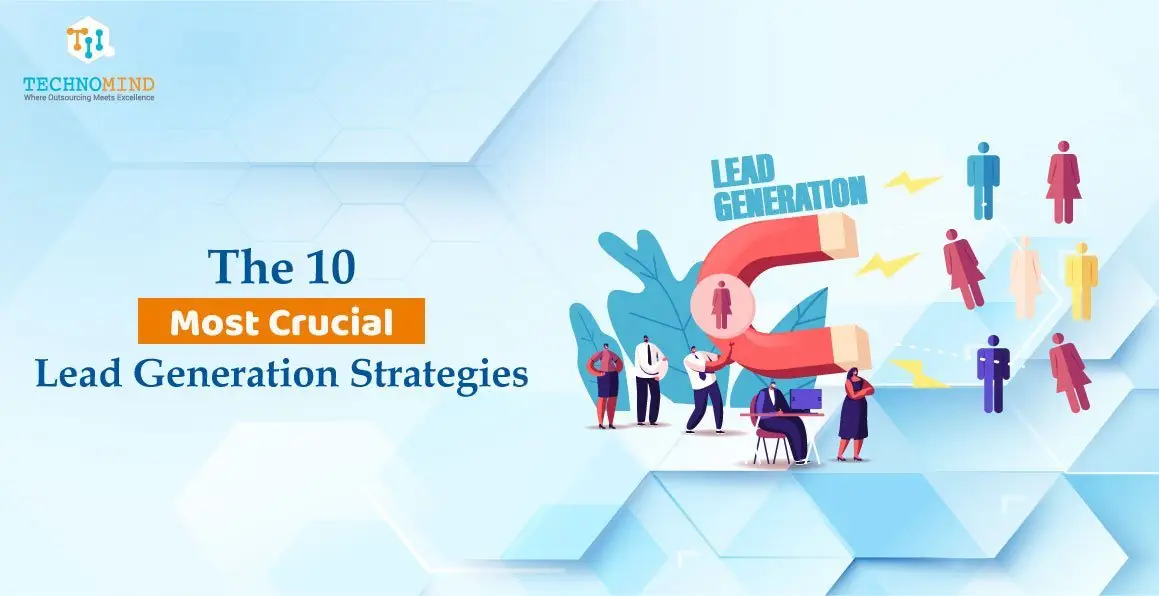Blog
How to Plan Digital Marketing for Tourism?
In an increasingly interconnected world where digital platforms have revolutionized the way we approach travel and exploration, the tourism industry stands at a crucial crossroads. With travelers relying more than ever on online resources and social media for trip planning and inspiration, the question arises: How can businesses in the tourism sector leverage the power of digital marketing to not only remain competitive but also carve a distinct and captivating identity in the minds of potential adventurers? The answer lies in a well-crafted and strategic approach to digital marketing, one that embraces the dynamic nature of the digital landscape and harnesses its potential to connect with and engage travelers on a global scale.
Today in this article, we are going to understand the importance of digital marketing for tourism and throw some ideas on how to plan tourism digital marketing and execute your digital marketing plan for tours & travel business.
So, let’s get started.
Current Scenario in Tourism Digital Marketing
The global tourism industry is slowly recuperating from the widespread impact of the COVID-19 pandemic, with travel activities gradually resuming as vaccination programs and safety protocols gain momentum. Notably, a significant shift towards sustainable and responsible tourism practices has emerged, driven by a growing emphasis on eco-friendly travel options, community engagement, and the preservation of natural and cultural heritage. Digital platforms have become increasingly integral, serving as key tools for marketing, booking, and virtual engagement, highlighting the industry’s heightened reliance on online strategies to maintain visibility and connection with travelers.
Despite the overall recovery, variations persist across different regions, with some destinations bouncing back faster due to a stronger focus on domestic tourism. As the industry continues to grapple with the changing landscape, adaptability, and innovation have become central themes, underscoring the necessity for businesses to remain flexible and responsive to evolving consumer preferences and the dynamic challenges posed by the shifting global landscape.
Importance of Digital Marketing for Tourism
Digital marketing has become a cornerstone for the tourism industry, given its pivotal role in influencing how modern travelers research, plan, and book their trips. Its paramount importance stems from various key factors.
- Global Reach: Enables businesses to access a worldwide audience and expand their market beyond local boundaries.
- Targeted Marketing: Allows tailored campaigns based on demographics, interests, and behaviors for effective audience engagement.
- Enhanced Customer Engagement: Utilizes social media and interactive content to build lasting relationships and foster brand loyalty.
- Real-time Analytics: Provides valuable insights into consumer behavior for data-driven decision-making and strategy optimization.
- Cost-effectiveness: Offers efficient resource allocation and higher return on investment compared to traditional marketing channels.
- Personalization and Customization: Tailors experiences to individual preferences, enhancing customer satisfaction and encouraging repeat business.
- Adaptability and Agility: Enables swift responses to evolving trends and consumer demands, ensuring sustained competitiveness in the dynamic tourism world.
How to Plan Digital Marketing for Tourism?
1. Define Clear Objectives and Target Audience
In the initial phase of planning digital marketing for tourism, it is crucial to establish specific and measurable goals. Whether it’s increasing website traffic, generating leads, or boosting online bookings, defining clear objectives provides a roadmap for the entire digital marketing strategy. Simultaneously, identifying the target audience based on demographics, interests, and travel behavior ensures that the marketing efforts are focused and tailored to the right people.
2. Develop a Comprehensive Content Strategy
An engaging and informative content strategy crafting is key to digital marketing for tourism to capture the attention of potential travelers. This may involve creating compelling travel guides, insightful blog posts, and visually appealing multimedia content that resonates with the target audience. Implementing a robust Search Engine Optimization (SEO) strategy is also vital to improve online visibility and drive organic traffic to the business’s website.
3. Leverage Social Media Marketing
The power of social media cannot be ignored in digital marketing for tourism. Utilizing popular social media platforms to showcase stunning visuals, share customer testimonials, and promote special offers can significantly enhance brand visibility. Engaging with the audience through interactive posts, contests, and live video streaming fosters a sense of community and builds lasting relationships with potential travelers.
4. Implement Pay-Per-Click (PPC) Advertising
Investing in targeted Pay-Per-Click (PPC) advertising campaigns on search engines and social media platforms can yield immediate results by driving traffic to the business’s website. Regular monitoring and optimization of these campaigns are essential in tourism digital marketing to ensure maximum return on investment and effective utilization of the allocated budget.
5. Focus on Email Marketing
Building a strong email list and utilizing email marketing as a tool to nurture relationships with potential and existing customers is a highly effective strategy in digital marketing for tourism. Sending personalized newsletters, promotional offers, and travel tips can keep the audience engaged and interested. Incorporating automation into the process allows for the delivery of timely and relevant content based on the recipient’s preferences and behavior.
6. Embrace Influencer Partnerships
Collaborating with influential travel bloggers, vloggers, and social media personalities can significantly amplify the reach and credibility of the business. Authentic and genuine connections with influencers whose values align with the brand’s identity can create a strong impact and foster trust among potential travelers.
7. Prioritize User Experience and Mobile Optimization
In a world where mobile usage is continually on the rise, ensuring a seamless and user-friendly experience across all digital platforms, especially on mobile devices, is crucial. Optimizing website speed, navigation, and design enhances user engagement and increases the likelihood of conversions, thereby contributing to the overall success of the digital marketing strategy.
Tips to Implement a Tourism Digital Marketing Plan
- Successfully implementing a digital marketing plan for the tourism industry requires diligence and adaptability. Here are some tips to consider:
Stay updated with the latest digital marketing trends and consumer preferences to remain competitive and relevant in the dynamic tourism landscape. - Continuously monitor and analyze key performance indicators (KPIs) to measure the effectiveness of the digital marketing efforts and make necessary adjustments.
- Respond promptly to customer queries and feedback to foster engagement and build trust among the audience.
- Utilize data analytics to gain insights into customer behavior and preferences, enabling the refinement of marketing strategies for better results.
- Collaborate with local businesses and tourism organizations to expand the network and reach a wider audience, fostering mutually beneficial relationships and opportunities for growth.
Conclusion:
Digital marketing has emerged as a game-changer in today’s dynamic tourism industry, transforming the way companies interact with tourists around the world. Its crucial contribution to expanding reach, encouraging genuine participation, and offering priceless information for strategic decision-making cannot be emphasized. Digital marketing, with a focus on adaptability, cost-effectiveness, and tailored experiences, continues to be the main engine behind profitable endeavors in the constantly changing tourism industry.
Reach out to Technomind Software right now if you’re looking to grow your Canadian tourist company with a strong digital marketing plan. We’ll help you realize your brand’s full potential on a global scale with right-on-spot digital marketing for the tourism business
Digital Transformation: A Necessity for Modern Startups in 2024
As a matter of fact, in 2024, the business environment stands as witness to a fundamental reality: digital…
8 Digital Marketing Strategies for Small Business Owners in 2024
The burning question for small business owners in 2024 is simple yet profound: How can you harness the power of digital marketing to propel your…
8 Best Digital Marketing Tacticts to Win Business in 2024
The definition of success in the marketing industry is constantly changing due to innovation and the ever-increasing demands of consumers…




0 Comments